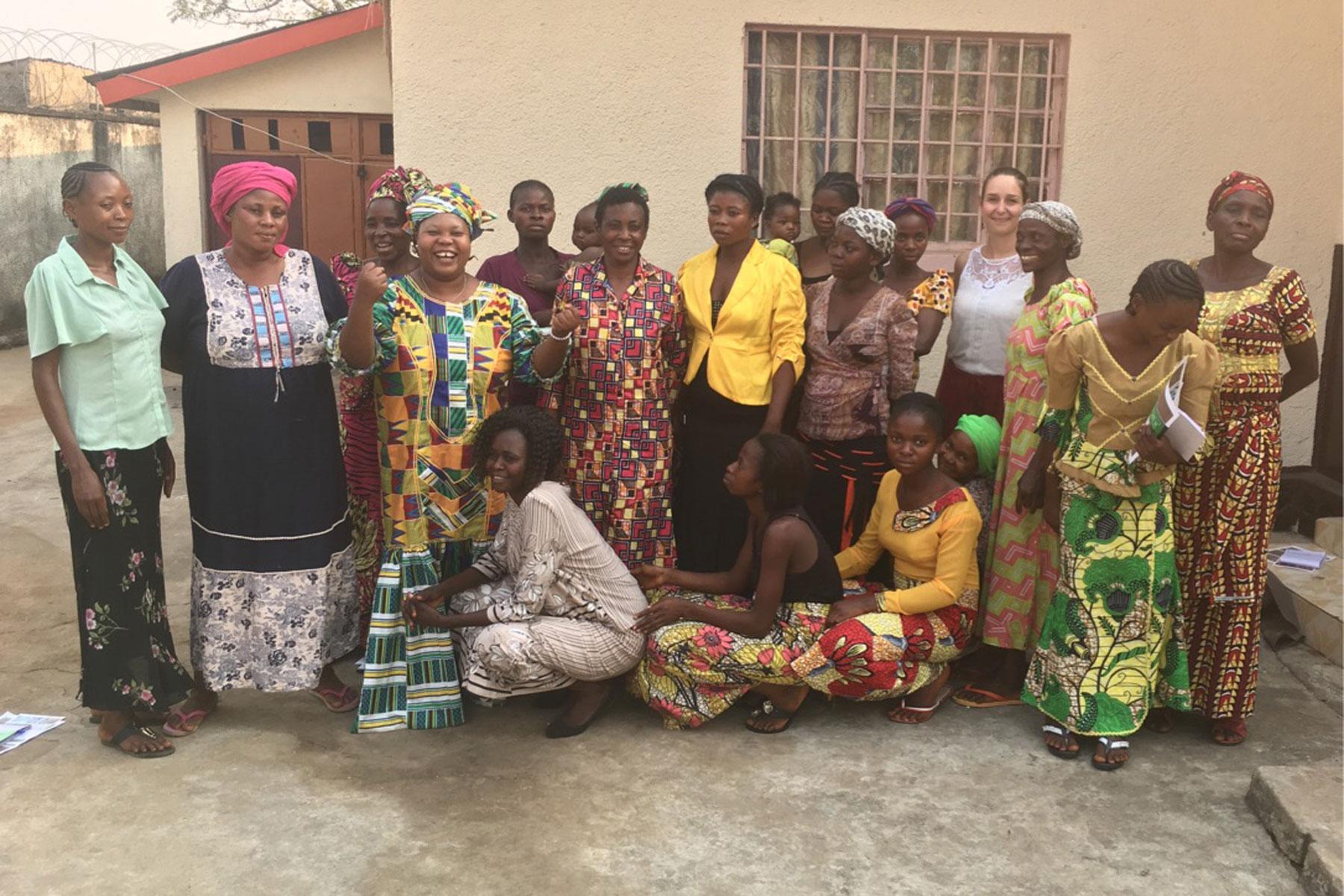Call for state responsibility in fight against sexual violence in DRC

The LWF was part of a delegation that recxently met with survivors of sexual violence in the Democratic Republic of Congo. Photo: Mukwege Foundation
Survivors’ voices at the center of shadow report to CEDAW committee
(LWI) - The Lutheran World Federation (LWF) is among five civil society organizations calling on the Democratic Republic of Congo (DRC) government to urgently assume its fundamental obligation to combat sexual violence in a country where the rape of women and girls is becoming increasingly trivialized as impunity shields perpetrators from prosecution.
The LWF, Movement of Survivors of Rape and Sexual Violence in DRC, Dr Denis Mukwege Foundation, Right Livelihood Award Foundation and the Panzi Foundation made this appeal in a joint shadow report released during DRC’s review by the 73rd session of the Committee on the Elimination of Discrimination against Women (CEDAW) on 9 July in Geneva. In their recommendations to the United Nations (UN) committee, they noted the government’s lack of commitment in implementing previous recommendations by the committee contributes to insecurity for women and girls. The unresolved civil conflict in the Central African country dates back to the early 1990s.
Putting the voices of survivors of rape and sexual violence at the center of their report, the organizations cited several cases from a period of eight months in 2018, during which a total of 200 women and girls were raped when unidentified gunmen attacked villages in eastern DRC.
They urged the UN committee to consider sexual violence perpetrated in the DRC as “a weapon of war” because, perpetrators are mainly armed groups and rape is systematically and strategically committed, in some cases targeting “all women in the same village, 4-month-old children to 84-year-old women.” The atrocities, the group report stated, are also committed in public to humiliate the community, with family members sometimes forced to take part or watch such violation. Victims interviewed said they were tortured during the rape, “which shows that these abuses have nothing to do with a so-called ‘sexual need’ but with relationships of destruction and control.”
Failure to address impunity is cited as a major impediment to justice for victims of sexual violence. In their recommendations to the CEDAW committee, the five organizations asked the DRC government to ensure that perpetrators of such crimes in the past or more recently, regardless of their rank, “are prosecuted, sentenced and serve their sentences, including abroad.”
Ineffective justice system
The report criticized the effectiveness of traditional punitive measures such as the customary justice system of imposing livestock payment as fines for sexual violence. The attitude that “‘I rape a girl, I compensate the family with a cow, and therefore I can rape as many girls as the cows I have,’ reinforces the aggressor’s feeling of impunity and has no impact on the mentality,” the report noted. During the hearing with the state, the committee pointed out to the same concern, reminding the government of the need to ensure that constitutional laws shaped by the international treaties it had ratified such as CEDAW, prevail over customary laws.
Involve the movement of survivors of sexual violence in the implementation, evaluation and strengthening of the national strategy against sexual violence and the national policy for gender equality.
In the recommendations to the CEDAW committee, the five organizations called upon the government to “involve the movement of survivors of sexual violence in the implementation, evaluation and strengthening of the national strategy against sexual violence and the national policy for gender equality, in order to put an end to massive and individual rape of women throughout the DRC.”
Stigma, double punishment on survivors
The report addressed the long-term stigma and double punishment to which survivors of rape and sexual violence are subjected as their families and communities ostracize them. “The stigma they suffer from, which is not yet a government priority, keeps them in a situation of poverty, or even leads them to prostitution and other forms of exploitation in order to survive.” The organizations urged the committee to compel the DRC government to create a state-funded support program where victims can access legal and financial support, free healthcare including in remote rural areas, and income-generating activities in the form of reparations.
Religious leaders also play a critical role in combating sexual violence. The CEDAW shadow report urged that religious leaders are made aware of the need to establish a policy of zero tolerance for sexual violence and ensure respect and support for survivors.
Prevention programs
The fight against the trivialization of sexual violence, the five organizations stated, must also include concrete prevention programs in schools and other institutions levels. Discussion about women’s rights and masculinities that engender inequalities should be part of such initiatives, the joint report stated.
Receiving the shadow report, the CEDAW committee said compensation to survivors of sexual violence was a priority. It however expressed concern over the lack of resources to ensure the government can establish mechanisms to protect women’s rights and promote gender equality.




